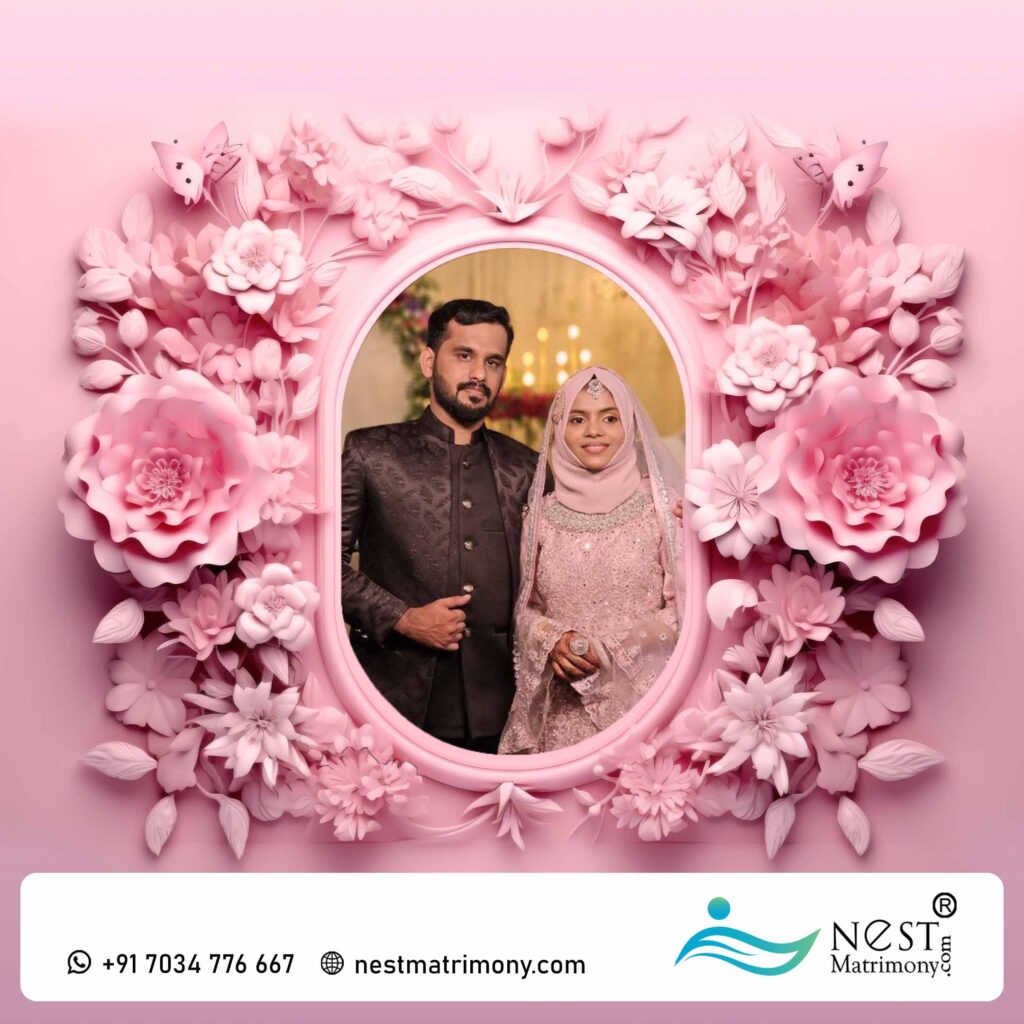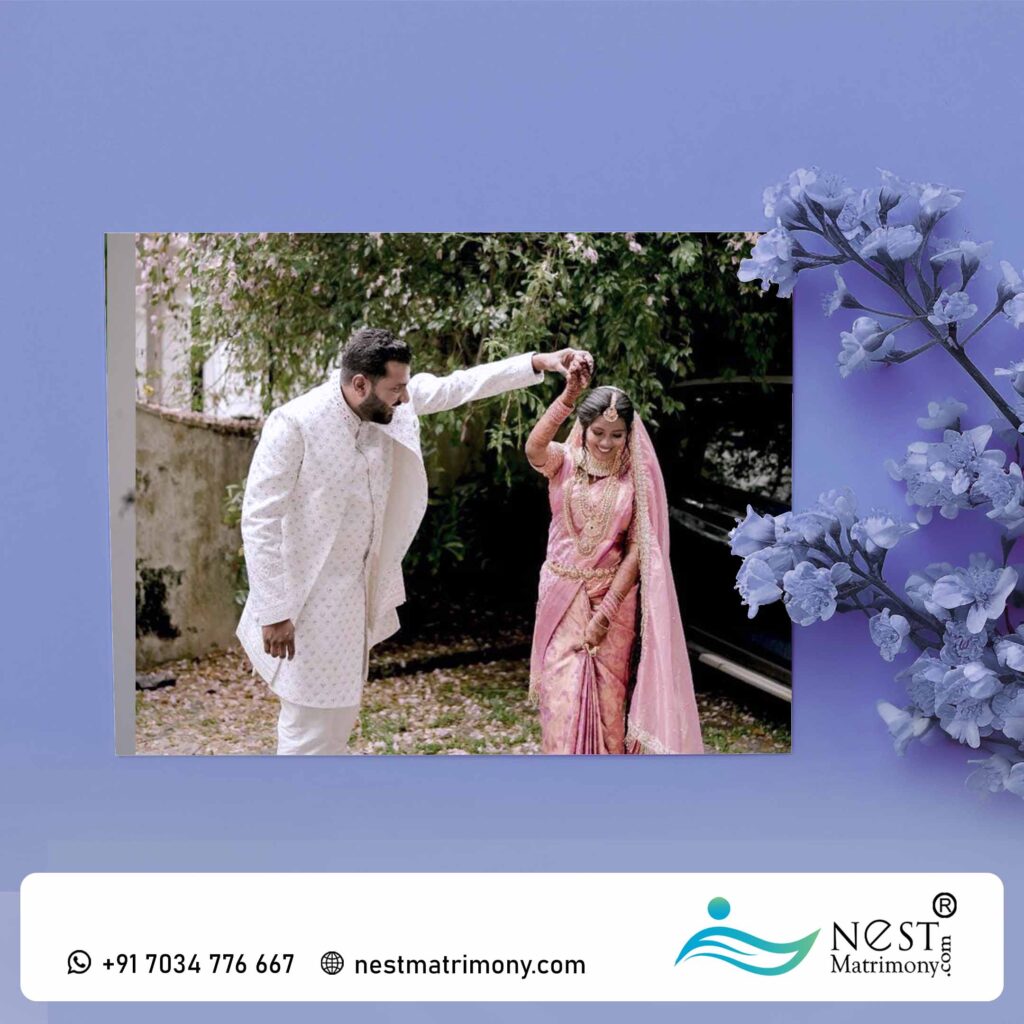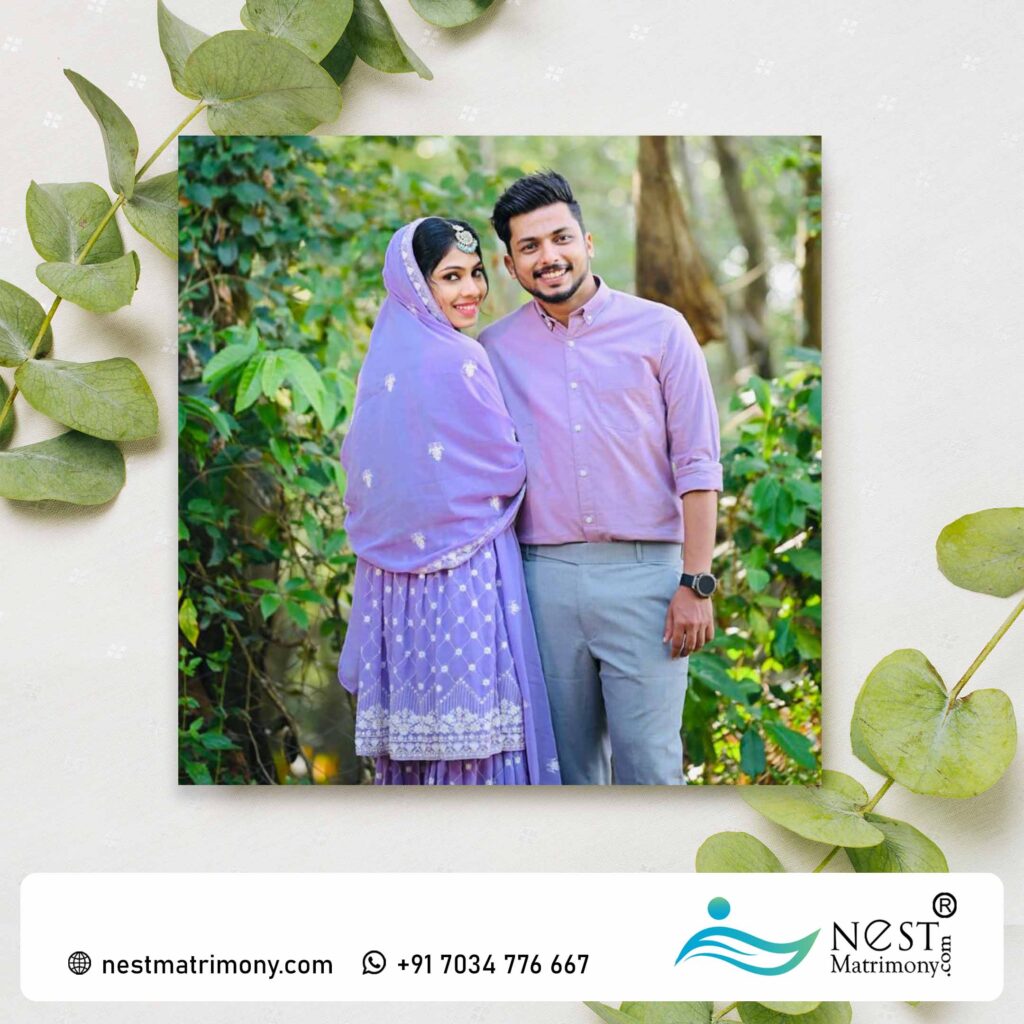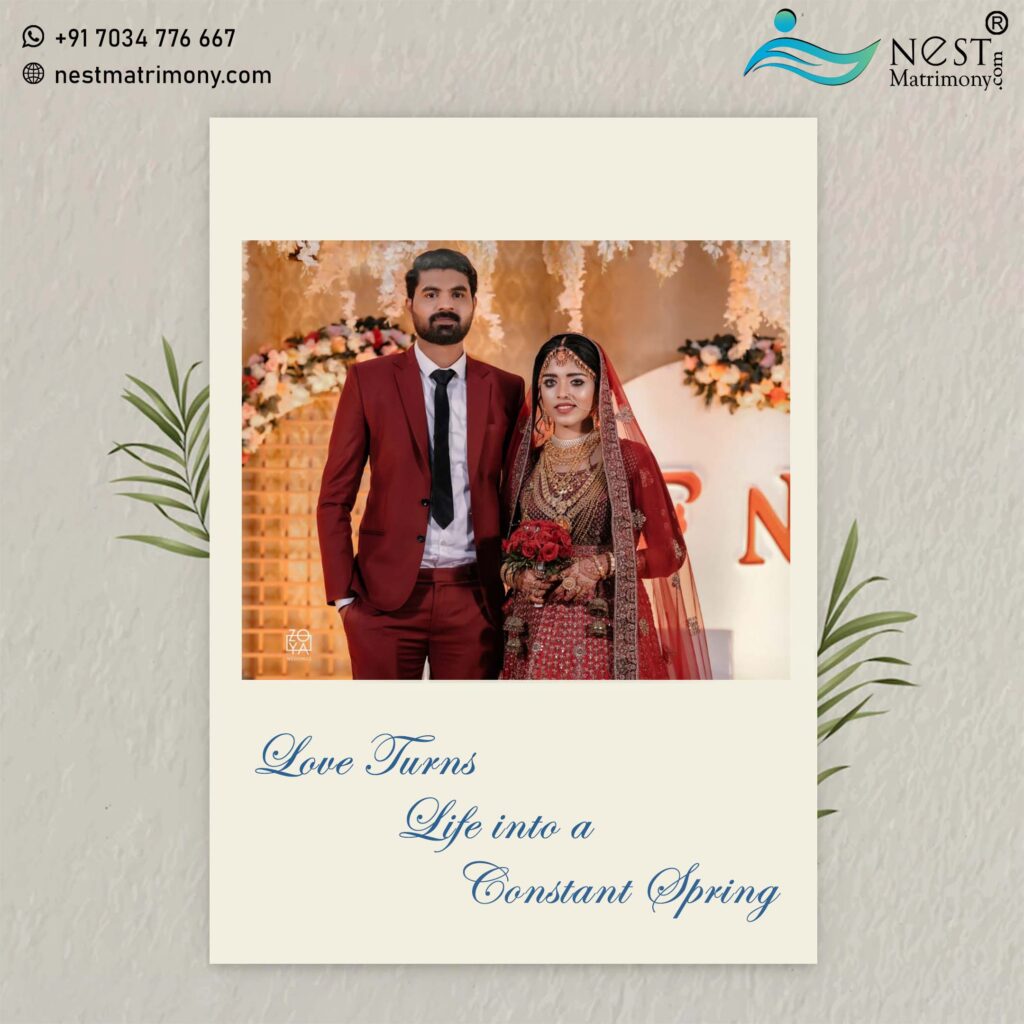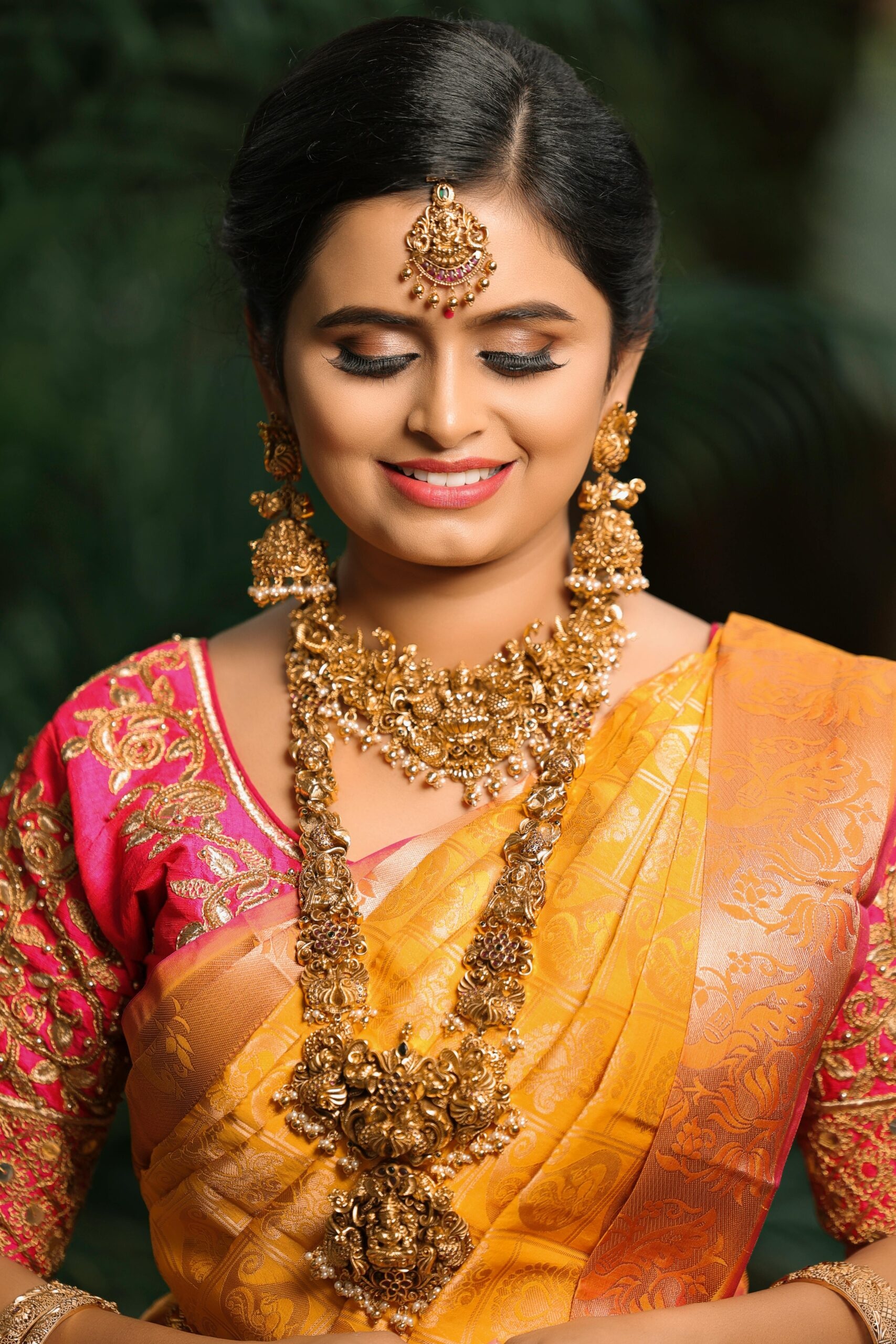Kerala Muslim Marriage: Traditions and Rituals | Nest Matrimony
Posted on 3 October
Kerala, known for its rich culture and traditions, has a unique blend of customs in its Muslim weddings. Kerala Muslim marriages are simple yet elegant, marked by strong values and community involvement. The process typically involves a few distinct stages: pre-wedding, wedding, and post-wedding rituals. Here's an overview of the key elements of a Kerala Muslim marriage.
1. Pre-Wedding Rituals
Mahr (Dowry):
In Islam, the bridegroom presents a gift called "Mahr" to the bride. This is a crucial pre-marriage agreement in Kerala Muslim weddings and is usually discussed during the engagement period.
Nischayam (Engagement):
A formal event where the families announce the marriage alliance. Gifts are exchanged, and the wedding date is set.
Mehndi Ceremony:
This is a joyful event where the bride’s hands and feet are decorated with beautiful henna designs. Female relatives and friends join in, singing traditional songs and celebrating the bride's upcoming marriage.
2. Wedding Day Rituals
Nikah (Marriage Ceremony):
The most important part of the Kerala Muslim marriage is the Nikah, the religious ceremony where the marriage contract is signed. It is typically officiated by a religious leader called the Qazi. The bride and groom declare their acceptance of the marriage, usually in the presence of two witnesses from each side.
Recitation of Quranic Verses:
Verses from the Quran are recited to bless the couple. After the Nikah, prayers are offered for the prosperity and happiness of the couple.
Mahr Payment:
As part of the Nikah ceremony, the Mahr, agreed upon earlier, is officially handed over to the bride.
Walima (Wedding Feast):
A grand feast hosted by the groom's family follows the Nikah. It is a celebratory event where family members, friends, and community members gather to congratulate the newlyweds.
3. Post-Wedding Rituals
Arsi Mushaf:
In some Kerala Muslim families, the bride and groom are given a mirror and Quran to gaze into together, symbolizing their new life as one.
Rukhsati (Bride’s Departure):
After the Nikah and Walima, the bride leaves her parental home and is escorted to her new home by the groom and his family. This is often an emotional moment, marking the bride's transition into married life.
Valimah (Reception):
A grand post-wedding reception organized by the groom’s family. It is a formal introduction of the bride to the extended family and friends.
Nest Matrimony’s Role in Kerala Muslim Marriages
Nest Matrimony has gained popularity for making the matrimonial process easier and stress-free. They help families find suitable matches based on religious, cultural, and personal preferences. Nest Matrimony focuses on:
Personalized Matchmaking:
Connecting families with potential brides and grooms who share similar backgrounds and values.
Comprehensive Profiles:
Detailed profiles are maintained to provide accurate information about candidates.
Support Throughout the Process:
From engagement to wedding planning, Nest Matrimony offers support in organizing a smooth marriage process.
5. The Essence of Kerala Muslim Weddings
Kerala Muslim weddings are centered around community, family involvement, and simplicity. While certain rituals might differ based on regions or family preferences, the core essence remains the same – a celebration of love, commitment, and faith.
This combination of tradition and modernity defines the charm of Kerala Muslim marriages. Nest Matrimony, with its extensive database and dedicated services, plays a significant role in facilitating these unions, ensuring that every match is rooted in shared values and mutual respect.



